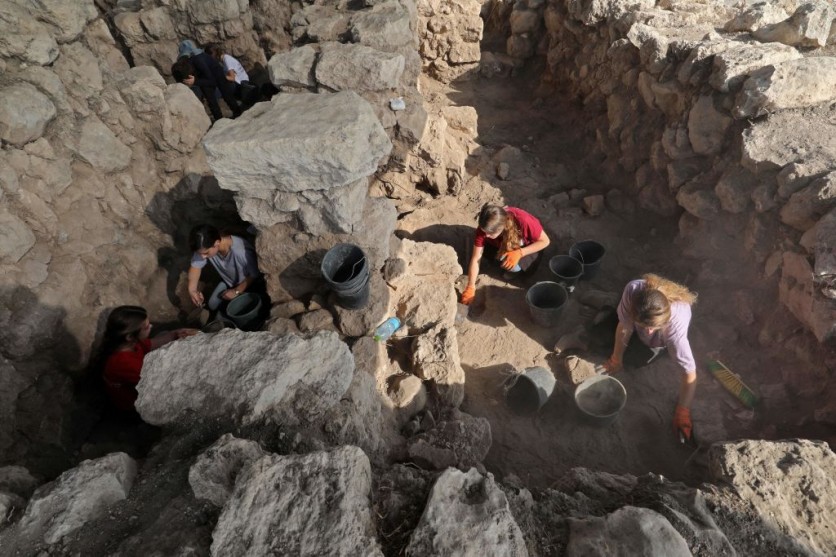Archaeologists have made a significant discovery in Israel, unearthing the oldest known gate, dating back 5,500 years, at the ancient city of Tel Erani.
According to the Times of Israel, the impressive stone and mud-brick entrance near Kiryat Gat has challenged existing perceptions of urbanization in the region, suggesting it began much earlier than previously thought.

Oldest Gate in Israel: A Glimpse Into Early Societies
This monumental gate, constructed during the Early Bronze IB period, sheds light on the development of early societies. Emily Bischoff, Israel Antiquities Authority's (IAA) excavation director, noted that the gate's unique composition-featuring both mud bricks and monolithic stones-set it apart.
Tel Erani, spanning 150 dunams (approximately 150,000 square meters), offers insight into urbanization during the Early Bronze Period, from around 3,300 BCE to 2,500 BCE.
The site reveals evidence of urban planning, including public structures, streets, fortification walls, and even indications of social hierarchies based on housing quality.
Previously, experts believed that urbanization began around 5,200 years ago, with the oldest known gate in Israel at Tel Arad. However, the discovery at Tel Erani predates this, pushing back the timeline of urban development by several centuries to 5,500 years ago.
The gate's significance extends beyond defense. It conveyed the message of a well-organized and influential settlement. Martin-David Pasternak, an IAA researcher specializing in the Bronze Age, noted that the gate's presence showed a strong settlement that was "well-organized politically, socially and economically."
Bischoff emphasized that constructing the gate and fortifications necessitated collaboration, implying the emergence of social organization and marking the start of urbanization. This development is evident in the shift from scattered settlements to life within city walls.
The excavation yielded more than just the gate. It also included a complete alabaster jar, various juglets, and red-colored bowls. The 7 to 8-meter-thick fortification wall, built during a period of Egyptian influence, provided additional insights into the region's historical context.
Historical Value of Tel Erani in Israel
Tel Erani's historical value is not new. It has hosted multiple archaeological efforts since the mid-1950s. These studies, undertaken by various institutions, including the Israel Antiquities Authority, Ben Gurion University of the Negev, and the University of Krakow, have provided crucial insights into ancient Canaanite life and culture.
The recent excavation coincided with plans to build a new water line by Mekorot, Israel's National Water Carrier. The line aims to increase water supply to Kiryat Gat, benefiting both its current needs and the forthcoming Intel chip manufacturing plant, a $25 billion investment projected to begin production in 2027.
The excavation area was backfilled to preserve the delicate mud brick structures. This discovery not only highlights the architectural achievements of an ancient civilization but also underscores the value of continued archaeological research in providing fresh perspectives on human history.
Related Article : Archaeologists Find an Extremely Rare 1,300-year-old Gold and Gemstone Necklace From a Medieval Woman in England

![Apple Watch Series 10 [GPS 42mm]](https://d.techtimes.com/en/full/453899/apple-watch-series-10-gps-42mm.jpg?w=184&h=103&f=9fb3c2ea2db928c663d1d2eadbcb3e52)



